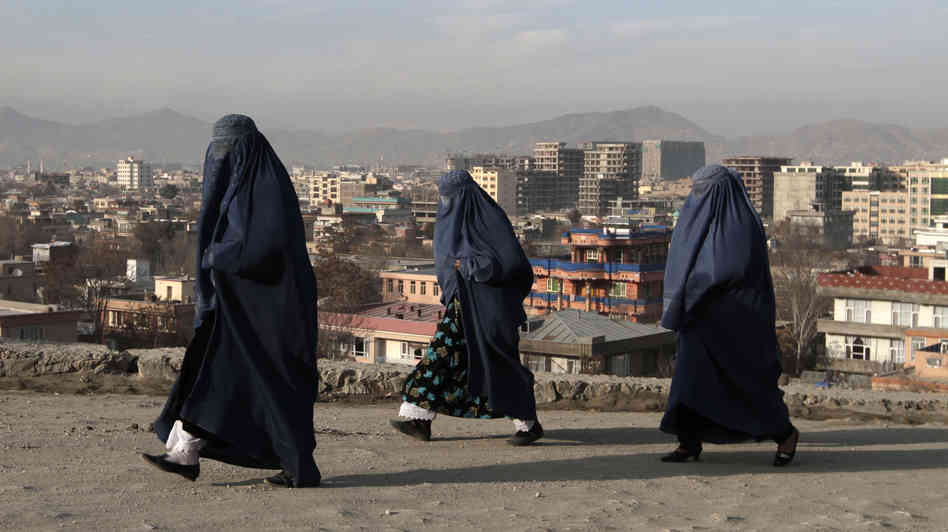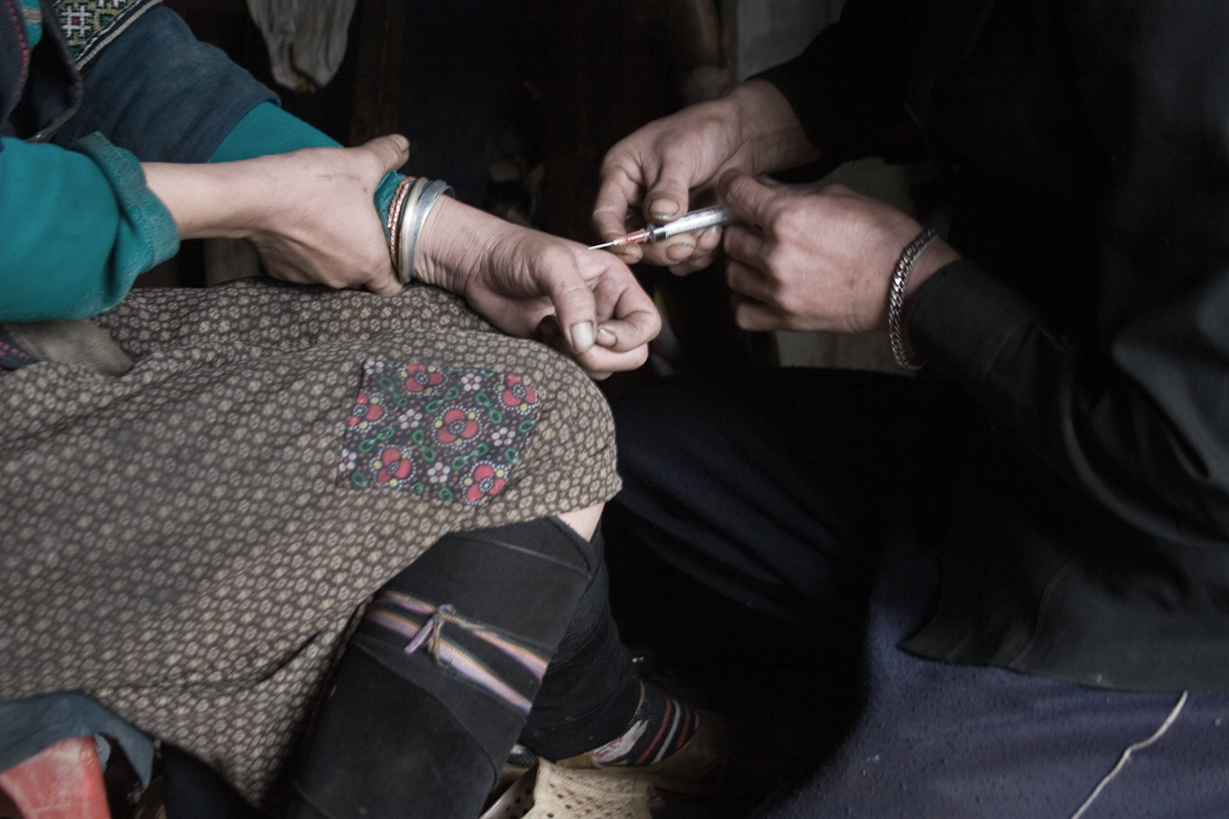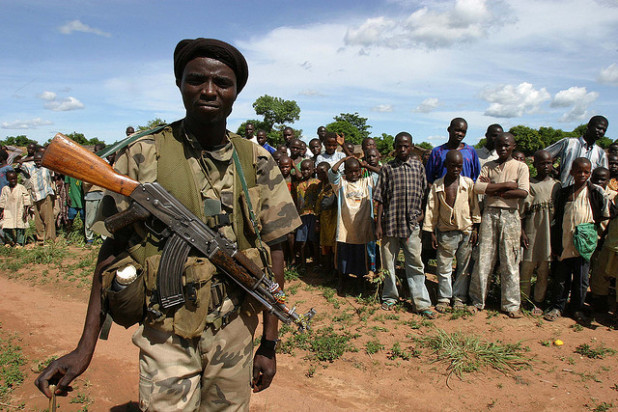
The HIV/AIDS virus is well poised to become one of the most devastating pandemics in modern history. Each day the disease kills thousands of individuals, mainly in Africa, but also in Latin America and Asia. The momentum of this pandemic is not exhausted either as it spreads to the Caribbean, Russia, Europe, and North America. HIV/AIDS will have many wider political, economic, and social ramifications around the globe that will need to be addressed properly. One way of addressing the potential effects of AIDS is to securitise the issue and treat it as a threat to the stability of the international system.
Up until the late 1990s, AIDS was considered solely as a public health and development issue. It was not until January 10, 2000 that the United Nations Security Council officially declared HIV/AIDS as a threat to international peace and security in Africa. Is the securitisation of AIDS necessary, and what impact does it have on the populations of Africa?
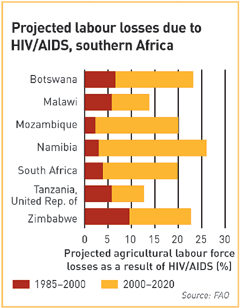
The virus has the potential to significantly harm a nation economically, socially and even militarily. Economically, the epidemic can slow or even reverse labour supply of a country as more individuals are unable to work. The effects may vary depending on the size of the pool or surplus labour in the country. Savings and investments of families will dwindle as well as more expenses are reallocated towards the treatment of AIDS. Children’s health, education, and nutrition will suffer as well, which harms long-run economic development. The epidemic can also divert public spending away from investments in human and physical capital towards public health expenditures leading to a decrease in the gross domestic product over time.
The HIV virus also has a big impact on military preparedness of countries with high infection rates. Rates among armed forces are generally two to five times higher than the rest of the population. In the long run, this large number of infected soldiers will cause an experience vacuum in the armed forces as skilled officers will need to leave the armed forces prematurely. Additionally, fewer personnel will be available for training new recruits. The military also plays a key role in spreading the virus. Some countries in Africa use HIV infected soldiers as weapons of war against their enemy’s population. During the wars with the Democratic Republic of Congo, for example, many HIV positive soldiers were ordered to rape the woman of the DRC causing higher infection rates and a diminishing population in the long run. The use of AIDS as a weapon is a major development in the debate for the securitisation of HIV/AIDS. Since the HIV virus can now be used directly to undermine a state’s national security, it has more right to be treated as a security threat in order to contain and control its possible adverse effects.
Although the securitisation of HIV/AIDS could provide an increased and more effective global response to the epidemic, it does have some negative aspects. Authors such as Buzan and de Wilde have studied securitisation as a political phenomenon and reached a conclusion that it exists only as a speech act articulated to publicly raise a specific issue to the status of an existential threat. Such a speech act brings along with it a very negative form of language surrounding the issue in question. In this case, the language and way of dealing with AIDS as a security issue is somewhat unjust. Securitisation of this issue would cause greater state mobilisation that could encroach on an increasing portion of social life where it might not be desirable. The language of security could also attach a threat-defense logic that may not necessarily be optimal in dealing with the HIV/AIDS pandemic. State representatives often use the term security to justify the use of any means necessary to deal with a threat. Any emergency measures used by the state can override state laws, leading to possible civil rights violations.
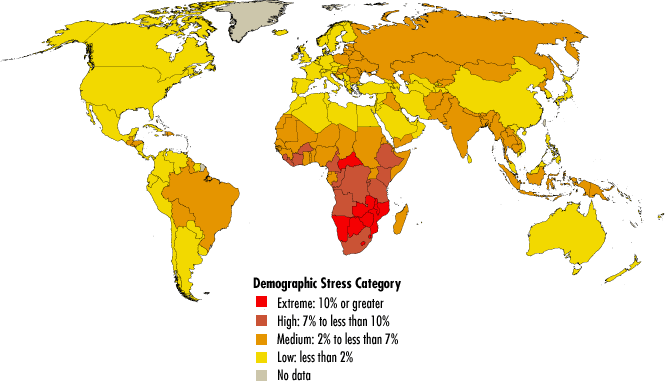
Additionally, these means of providing security would be moved to the top of the political hierarchy where the actors responsible are mainly the military and intelligence services. At the top tiers of power, many processes are less transparent, making it easier for drastic and undemocratic measures to be implemented. Calls for quarantining such people, subjecting them to various forms of violence, attempting to bar them from serving in state institutions, and refusing to issue visas to HIV-positive foreigners are only a few of the examples in which people living with HIV/ AIDS have been alienated and persecuted by some states for their illness. Placing HIV/AIDS in the hands of centralised state powers provides the opportunity for exploiting the main interest of the state: power.
In this context, national and international actions are likely to be limited to instances where it touches upon the security interests of the state rather than humanitarian interests. This in effect could lead to a policy of disease treatment only in areas where states have core national security interests, simultaneously ignoring other regions.
The threat-defense logic of securitising AIDS could also lead to changes in funding priorities. Within a security framework, concern will be drawn away from how the disease affects civilian populations to how it affects core institutions of the state. Thus funding for treatment would be diverted from the civilian population to the armed forces and state elites.
It is therefore difficult to decide whether the securitisation of AIDS is a beneficial or harmful. One the one hand, securitisation could speed up the treatment and recovery process as well as enjoy an increased budged for operations. On the other hand, the language and rationality of securitisation could cause uneven treatment as states would only be willing to treat the disease where it touches on their national interest. Furthermore, allowing the military and intelligence agencies to deal with the disease could lead to some violations of civil liberties as these institutions usually have a very Machiavellian view of power.


